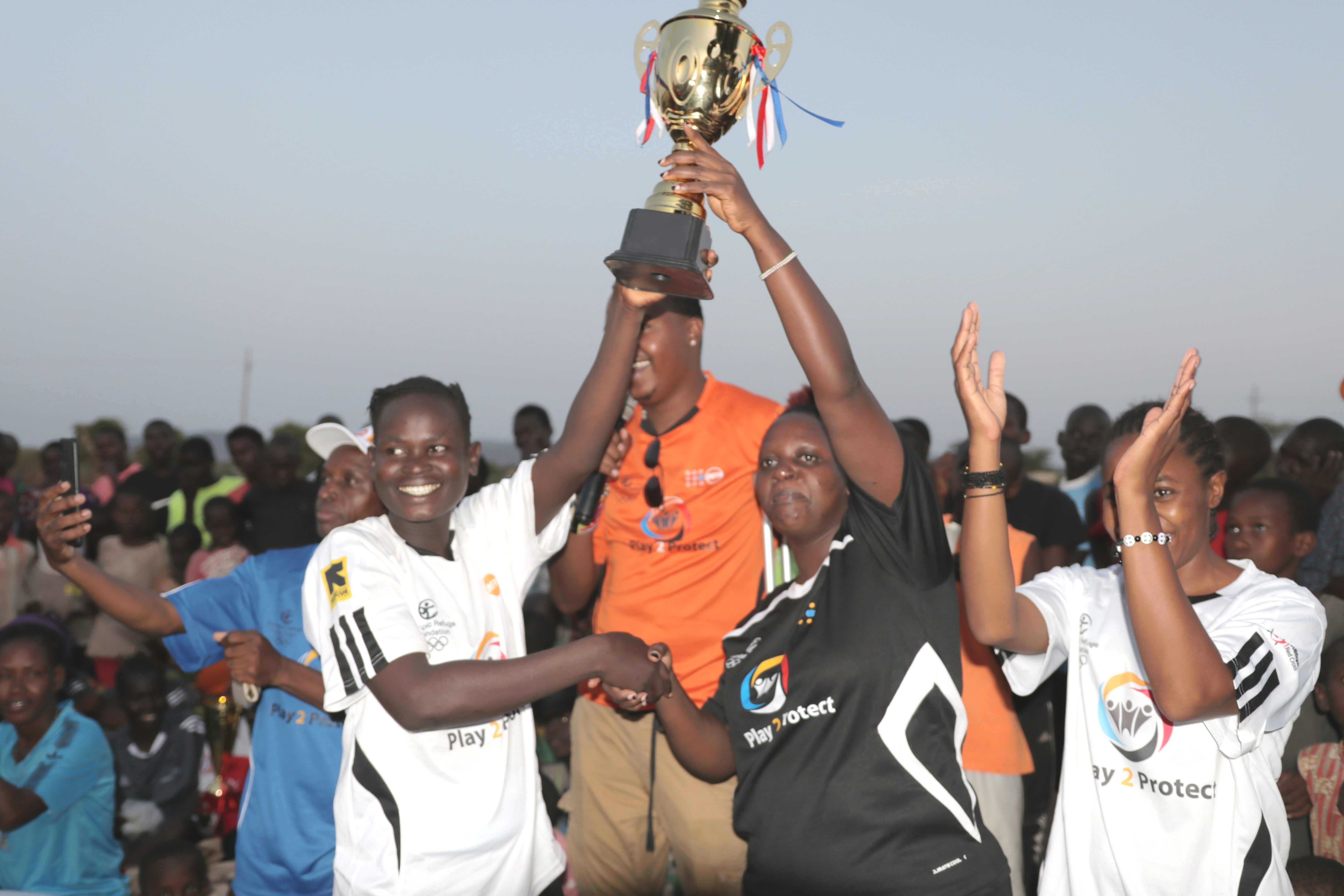Creating safe and protective spaces where adolescent girls and boys feel supported and aided to make healthy choices takes effort. In Kakuma refugee camp and the Kalobeyei Integrated Settlement, 14 schools serving the refugee and host communities have embarked on building such spaces by revitalizing sports clubs that integrate life-skills learning and sporting activities, while encouraging young people to speak up and seek help when needed.
These efforts are part of the Play2Protect project jointly funded by the Olympic Refuge Foundation and UNFPA. The initiative seeks to empower adolescent girls and boys affected by displacement to serve as champions against gender-based violence in their communities. Through mentorship and learning incorporated into play, young people are encouraged to leverage their potential to end violence and abuse against women and girls.
“At the beginning of each sporting activity, we share messages on the need to build a gender-equal, respectful, non-violent culture amongst players and in the community, as well as how to identify gender-based violence and abuse. Afterward, we take time to reflect on lessons learned during the game, and how these can be applied to daily life,” says Jima Loboi Logwe, a sports teacher and coach at Settlement Primary School in Kalobeyei.
Students engaged in these clubs are selected as peer educators who reach a wider network of adolescents with information. They also act as stewards to monitor and report incidences of gender-based violence, including bullying and harassment. Through the Play2Protect initiative, coaches, teachers, and healthcare workers have also been trained on how to prevent and respond to gender-based violence amongst adolescents, and the provision of youth-friendly health services to young survivors of GBV.
The revival of sports clubs has led to the establishment of inter-school tournaments featuring athletics and ball games. In Kalobeyei Integrated Settlement, teams of 31 participants have been established in each of the nine participating schools, and both girls and boys are given an equal opportunity to participate in team events.

learning sessions on ending gender-based violence.
Students with disabilities also form part of the team, reinforcing the message of inclusion and teamwork amongst participants and spectators who attend the games. “The goal is to foster greater cohesion and inclusion in the community, regardless of gender or physical ability,” says Community Sports Coach Benson Ebei. “The sports field becomes a classroom for learning and acquiring the life skills that are essential and helpful to the young girls and boys.”
In 2021, UNFPA and Olympic Refuge Foundation supported the Kenya Red Cross, Danish Refugee Council, and the International Rescue Committee to implementthe Play2Protect project, enhancing access to sports and the participation of adolescent girls and young women within the Kakuma Refugee Camp, Kalobeyei Integrated Settlement, and surrounding host communities. “More girls are taking up sports as a result of these efforts, and in the process raising awareness on the need for gender inclusion and the elimination of violence against women and girls,” says UNFPA Humanitarian Specialist John Wafula.



